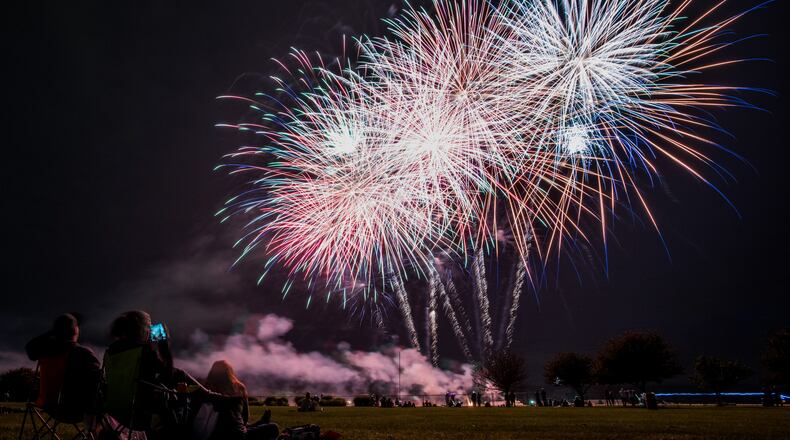Under previous law, Ohioans were allowed to purchase fireworks but were legally obligated to take them outside the state within 48 hours of the purchase and were not able to set fireworks off in the state without a permit.
Officials in Middletown said the city is following the state in allowing residents to use fireworks on the designated holidays.
“Our policy currently follows the Ohio Revised Code,” Middletown Spokesperson Missy Knight said. “Since Ohio Revised Code changes July 1, we will continue following Ohio Revised Code unless Middletown City Council changes that for the future.”
The City of Fairfield has prohibited fireworks for decades, and the city’s Law Director Steve Wolterman said the rule still stands.
Unless permitted, “No person shall discharge, ignite or explode any fireworks in this municipality,” Wolterman said while quoting the ordinance.
Hamilton officials said the city is following the Ohio law — fireworks are allowed at the designated times. Other areas allowing fireworks, keeping in line with the state’s guidance, include Monroe, Liberty Twp. and West Chester Twp.
Germantown announced it will keep its ban in place and not permit the use of fireworks there. The City of Cincinnati is also prohibiting fireworks unless permits are obtained.
Where no ban is in place, consumer-grade fireworks and smaller may be discharged on the following holidays if all parameters are met:
- July 3-5 and the weekend before and after from 4 to 11 p.m.
- Labor Day weekend 4 to 11 p.m.
- Diwali 4 to 11 p.m.
- New Year’s Eve 4 to 11:59 p.m.
- New Year’s Day 12 a.m. to 1 a.m. and 4 to 11 p.m.
- Chinese New Year 4 to 11 p.m.
- Cinco de Mayo 4 to 11 p.m.
- Memorial Day 4 11 p.m.
- Juneteenth 4 to 11 p.m.
Here are some of the parameters:
- No person under the age of 18 years old is permitted to handle or discharge fireworks.
- Persons under the age of 18 cannot be within 150 feet of the discharge point of aerial fireworks.
- No person can use fireworks while in possession or control of, or under the influence of, any intoxicating liquor, beer, or controlled substance.
- Aerial devices cannot be discharged within 150 feet of spectators.
- Non-aerial devices cannot be discharged within 50 feet of spectators.
- No person can store in excess of 125 pounds of fireworks unless they have additional safety measures and safeguards in place for such storage.
- Fireworks cannot be discharged indoors.
- Fireworks cannot be aimed or discharged toward any person or object (such as buildings).
- Fireworks cannot be discharged on public property or private school property.
- Fireworks cannot be discharged if drought conditions exist or other weather hazards exist.
Butler County Sheriff Chief Anthony Dwyer told the Journal-News he doesn’t expect the new Ohio law to change the sheriff’s enforcement, although there might be more noise complaints if more Butler County residents are setting off fireworks.
“During the holidays — obviously the Fourth of July and New Year’s Day — we have a lot of fireworks complaints. More than we can probably handle,” Dwyer said. “It’s almost impossible to respond to every call on Fourth of July when people set fireworks off.”
Now that fireworks are technically legal to be set off in Butler County, the sheriff’s dispatch center will be more acutely focused on sifting through complaints regarding safety, and not just noise.
Dwyer said that even though the usage of fireworks might increase, the ability to police the situation effectively might be improved by the new law.
“It always has been a challenge,” Dwyer said. “This will hopefully codify some more specifics and make it a little bit easier.”


